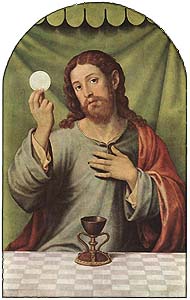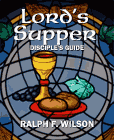Free E-Mail
Bible Studies
Beginning the Journey (for new Christians). en Español
Old Testament
Abraham
Jacob
Moses
Joshua
Gideon
David, Life of
Elijah
Psalms
Solomon
Songs of Ascent
(Ps 120-135)
Isaiah
Advent/Messianic Scriptures
Daniel
Rebuild & Renew: Post-Exilic Books
Gospels
Christmas Incarnation
(Mt, Lk)
Sermon on the Mount
(Mt 5-7)
Mark
Luke's
Gospel
John's Gospel
7 Last Words of Christ
Parables
Jesus and the Kingdom
Resurrection
Acts
The Early Church
(Acts 1-12)
Apostle Paul
(Acts 12-28)
Paul's Epistles
Christ Powered Life (Rom 5-8)
1 Corinthians
2 Corinthians
Galatians
Ephesians
Vision for Church
(Eph)
Philippians
Colossians,
Philemon
1
& 2 Thessalonians
1 & 2 Timothy,
Titus
General Epistles
Hebrews
James
1 Peter
2 Peter, Jude
1, 2, and 3 John
Revelation
Revelation
Conquering Lamb of Revelation
Topical
Glorious Kingdom, The
Grace
Great Prayers
Holy Spirit, Disciple's Guide
Lamb of God
Listening for God's Voice
Lord's Supper
Names of God
Names of Jesus
Christian Art
About Us
Speaking
Contact Us
Dr. Wilson's Books
Donations
Watercolors
Sitemap
Brief Glossary of the Lord's Supper
https://www.jesuswalk.com/lords-supper/glossary.htm
Audio (11:27)
https://www.jesuswalk.com/lords-supper/glossary_audio.htm
 Juan de Juanes (Spanish painter, 1523-1579), Christ with the Chalice, Wood, 101 x 63 cm, Museum of Fine Arts, Budapest. Jesus is holding the "host" in this painting. Larger image. |
If you've only partaken of the Lord's Supper in one or two congregations, you're probably ignorant of the many words used by different traditions. One term is not "better" than another, just different. Some of these words I have used in this series of lessons.
Words for the Lord's Supper
Lord's Supper is used directly in 1 Corinthians 11:20 to describe this ceremony of remembrance. This word is common in most denominations. The term Last Supper refers to the historical event which took place the day before Jesus' crucifixion at which he instituted or began the practice of the Lord's Supper.
Communion, from Latin communion-, communio, "mutual participation," from communis. The Latin Vulgate translates the Greek word koinōnia in 1 Corinthians 10:16 this way. The King James Version (KJV) translates koinōnia as "communion" here also. This idea of mutual sharing has come into English as "communion," and emphasizes both the way that the Lord's Supper unites God's people and the communion we have with Christ at the Table. This word is very common among Protestant groups, such as Methodists, Presbyterians, Baptists, and others, and is often referred to as Holy Communion.
Eucharist, from Greek eucharisteō, "be thankful," comes from the account that Jesus "gave thanks" (Matthew 26:27, Mark 14:23, Luke 22:19, 1 Corinthians 11:24) before presenting to his followers the bread and the wine. This word is more common in liturgical churches such as Roman Catholic, Anglican, and Episcopal.
Mass is used by Roman Catholics, Anglo-Catholics, and some High Church Lutherans to refer to the service of the Lord's Supper. The word comes from Vulgar Latin messa, literally, "dismissal at the end of a religious service," and Late Latin, "to send." A related word missal is a book containing all that is said or sung at mass during the entire year.
Maundy Thursday refers to the day on which the Lord's Supper took place, which some churches celebrate with a Maundy Thursday service. Maundy comes from the Latin mandatum, "command" from which we get our English word "mandate." That night Jesus said, "A new command I give you: Love one another. As I have loved you, so you must love one another" (John 13:34).
Agape Feast or Love Feast is another term in Scripture for the Lord's Supper (Jude 12), used especially these days by the House Church movement. Agapē is the Greek word most often used to describe "selfless love." Generally an Agape Feast refers to a full meal that Christians have together, during which the bread and wine are eaten, such as was the practice in Corinth and the early church (1 Corinthians 11:20-22; Acts 2:46; Jude 12).
The Breaking of Bread (Acts 2:42, 46; 20:7) is another way the early church referred to the Lord's Supper.
Divine Liturgy is the term often used by the Byzantine tradition -- Eastern Orthodox, Oriental Orthodox, and some Eastern-Rite Catholic churches. The word "liturgy" comes from Greek leitourgia, "public service." In English it refers to a rite or body of rites prescribed for public worship. Holy Qurbana, or "Holy Sacrifice" is the term used by the Chaldean and Syriac Christian Rites. Badarak is the term in the Armenian Church.
Host is a term sometimes used to describe a small, thin, round wafer used for communion, especially by those who believe in transubstantiation (see below). The word comes from Latin hostia, "victim, sacrificial animal," and is used in the Roman Catholic tradition and occasionally by Anglicans.
Chalice, from the Latin calix, "cup," is a goblet intended for drinking during a ceremony.
Cup is the term used in the New Testament to refer the drinking vessel (and often the wine contained within the vessel) used in the Lord's Supper (Matthew 26:27; Mark 14:23; Luke 22:20; 1 Corinthians 10:16, 21; 11:25-26).
Table of the Lord (1 Corinthians 10:21) is another way of referring to the Lord's Supper, emphasizing the host who invites people to a meal in his presence, fulfilled in heaven (Luke 22:30). In the Old Testament the term "Lord's table" referred to the priesthood's ministry of sacrifice and offering (Malachi 1:7, 12).
Nouns Used to Refer to the Lord's Supper
What should we call this action of partaking of the Lord's Supper? There are several terms used to describe this kind of religious act:
Sacrament (from Latin sacrare, "to consecrate"), is probably the most common term, defined in the dictionary as, "a Christian rite (as baptism or the Eucharist) that is believed to have been ordained by Christ and that is held to be a means of divine grace or to be a sign or symbol of a spiritual reality." Catholics recognize seven sacraments (Eucharist, baptism, ordination, penance, confession, marriage, and last rite). Most Protestants recognize two sacraments (the Lord's Supper and baptism).
Ordinance (from Latin ordinare, "to set in order, appoint"4), "a prescribed usage, practice, or ceremony." Sometimes this word is used instead of sacrament by those who want to deemphasize what they would consider "magical" ideas that have been associated with the term "sacrament." They use ordinance to emphasize Christ's direct command and usually restrict the term "ordinance" to the Lord's Supper or baptism.
Rite and Ritual (from Latin ritus, "number") is a more general term meaning in this context, "a prescribed form or manner governing the words or actions for a ceremony; the ceremonial practices of a church or group of churches." The Lord's Supper can properly be referred to as an ordinance, a sacrament, or a rite, depending upon your tradition. Some Christians use the term "ritual" with a bit of contempt, but if you observe them, they come to use the same prescribed words again and again, such as wedding vows or words at the Lord's Table.
Rites and rituals are not wrong. They are human ways in which we reverently set apart certain events as special, as sacred. Being critical of other Christians' rites and traditions shows our own narrowness, parochialism, and critical spirit more than the supposed purity of our doctrine or the superiority of our freedom in Christ.
The Presence of Christ in the Sacrament
Transubstantiation. (trans- = "change") The miraculous change by which, according to Roman Catholic and Eastern Orthodox dogma, the Eucharistic elements at their consecration become the body and blood of Christ while keeping only the appearances of bread and wine.
Sacramental Union (sometimes called Consubstantiation, con- = "same"). The actual substantial presence and combination of the body and blood of Christ with the Eucharistic bread and wine according to a teaching associated with Martin Luther.
Real Presence. Catholics believe in the corporeal presence or Real Presence of Christ in the sacrament, that the bread becomes Christ's body, and that when they partake they are taking in Christ's actual body.
Celebrate, Perform, Partake
While we're at it, let's clarify the verbs that describe the Lord's Supper in our day. Different traditions use different verbs. I share this so you'll be able to understand when other Christians relate the Lord's Supper in their own tradition and so you won't be offended by their terminology.
Celebrate, in this context, means "to perform (a sacrament or solemn ceremony) publicly and with appropriate rites," such as in "celebrate the mass." Some Protestants use "celebrate" to mean to praise God with joy and exuberance. Don't confuse this connotation with "celebrate" in connection with the Lord's Supper. That's really a different and separate use of the word. The person who officiates at the Lord's Supper is technically referred to as the "celebrant."
 Available as e-book and paperback. |
Perform, in this context, means "to do in a formal manner or according to a prescribed ritual."
Partake of, as in the phrase, "partake of the Lord's Supper," means to eat and drink the communion elements.
Enact, to act out. In a sense we act out the Last Supper, breaking the bread, offering prayers and blessings, and distributing the elements to those present.
Most English definitions and etymologies are from Merriam-Webster's 11th Collegiate Dictionary (2003).
Copyright © 2024, Ralph F. Wilson. <pastor![]() joyfulheart.com> All rights reserved. A single copy of this article is free. Do not put this on a website. See legal, copyright, and reprint information.
joyfulheart.com> All rights reserved. A single copy of this article is free. Do not put this on a website. See legal, copyright, and reprint information.
 |

|
In-depth Bible study books
You can purchase one of Dr. Wilson's complete Bible studies in PDF, Kindle, or paperback format -- currently 48 books in the JesusWalk Bible Study Series.
Old Testament
- Abraham, Faith of
- Jacob, Life of
- Moses the Reluctant Leader
- Joshua
- Gideon
- David, Life of
- Elijah
- Psalms
- Solomon
- Songs of Ascent (Psalms 120-134)
- Isaiah
- 28 Advent Scriptures (Messianic)
- Daniel
- Rebuild & Renew: Post-Exilic Books
Gospels
- Christmas Incarnation (Mt, Lk)
- Sermon on the Mount (Mt 5-7)
- Luke's Gospel
- John's Gospel
- Seven Last Words of Christ
- Parables
- Jesus and the Kingdom of God
- Resurrection and Easter Faith
Acts
Pauline Epistles
- Romans 5-8 (Christ-Powered Life)
- 1 Corinthians
- 2 Corinthians
- Galatians
- Ephesians
- Philippians
- Colossians, Philemon
- 1 & 2 Thessalonians
- 1 &2 Timothy, Titus
General Epistles
Revelation
Topical

 To be notified about future articles, stories, and Bible studies, why don't you subscribe to our free newsletter, The Joyful Heart, by placing your e-mail address in the box below. We respect your
To be notified about future articles, stories, and Bible studies, why don't you subscribe to our free newsletter, The Joyful Heart, by placing your e-mail address in the box below. We respect your